|
“My daughter, tell the whole world about My inconceivable mercy.” -Christ to St. Faustina Kowalska (Diary, no. 699) In one of my graduate theology classes, a professor defined mercy as “love which keeps loving in the midst of rejection.” Pope St. John Paul II further elucidates, “And is not mercy love's ‘second name,’ understood in its deepest and most tender aspect, in its ability to take upon itself the burden of any need and, especially, in its immense capacity for forgiveness?” This mercy, this type of love, often seems inconceivable. Christ himself concedes the inconceivable aspect of mercy to St. Faustina. He does not concede the impossibility of mercy, but places no limits on his own. God’s mercy is beyond comprehension. It is characterized by an unending, unfailing love for humanity—a humanity which has rejected him since the garden of Eden. From that moment and until today, God has worked and is working towards our salvation. His fidelity can be seen throughout Scripture and jumps from the pages of the Bible into our very lives. Jesus Christ is the face of mercy. This Sunday, we especially celebrate the merciful love of the Father on the second Sunday of Easter – known formally as Divine Mercy Sunday since its establishment in 2000 at the canonization Mass of St. Faustina by Pope St. John Paul II. Divine Mercy Sunday is a powerful celebration of the mercy of a God who sent his only begotten Son in expiation for our sins. We come to know God as the Father who stands in the field awaiting the return of his prodigal sons and daughters, the King who washes the feet of his bruised and dirty children, the crucified Lord who invites us to place our finger in his wounds, to see and believe. This mercy is life-changing—a truth affirmed in stories such as the woman at the well or even that of the good thief on the cross. God’s mercy inspires us and strengthens us to be men and women on fire with love—to be missionary disciples proclaiming the wonder of salvation and the infinite goodness of God. This mercy affirms that we are loved, called, and chosen. It assures us that we have purpose and meaning, gifts and talents that can be used for building the Kingdom of God. God’s mercy, however, is meant for more than our own personal benefit. God has shown us his mercy to show us the way back to himself. We are called, therefore, to emulate it. Christ’s mercy is our beacon, our model. We are called to live mercy, to be the face of mercy to our brothers and sisters—an impossible task on our own. Christ makes the inconceivable conceivable by empowering us through the gift of Holy Spirit as he did at Pentecost, of which we read in this Sunday’s Gospel. Christ breathes on those in the Upper Room, saying, “Receive the Holy Spirit.” Mercy, much like grace, is an unmerited gift of love from God. It is meant to lead us outward in love and mercy toward our neighbor. Christ also says, “As the Father has sent me, so I send you." Therefore, this gift is not meant to be hoarded in the Upper Room, but to be carried out to the nations! We see the concrete fruits of the Holy Spirit and of lived mercy in the early Church. In the first reading for Sunday, we read, “All who believed were together and had all things in common; they would sell their property and possessions and divide them among all according to each one's need.” The early Church was rooted in the understanding of mercy, which resulted in a strong communal life founded on works of charity. The early Church understood well how to be the face of mercy to a broken world. This can seem like a daunting task. As John Paul II concedes, “It is not easy to love with a deep love, which lies in the authentic gift of self.” However, “This love can only be learned by penetrating the mystery of God's love. Looking at him, being one with his fatherly heart, we are able to look with new eyes at our brothers and sisters, with an attitude of unselfishness and solidarity, of generosity and forgiveness.” We love because we were first loved. We are merciful because we have first been shown mercy. We are called, therefore, to carry this torch of mercy into the third millennium, into the here and now. We are all called to be missionary disciples spurred forth by God’s love. Let us, then, be rooted in “the breaking of bread and to the prayers”—in the Eucharist and prayer—in order to better receive and emulate daily God’s mercy. In so doing, we will have the courage and strength to go out into our hurting world, the field hospital, with the healing balm of God’s mercy. Let us make the inconceivable mercy of God conceivable by the witness of our lives. May our recurring prayer be always, as St. Faustina taught us, “Jesus, I trust in you!” Question for Reflection: How has God revealed his mercy to you? How can you “be the face of mercy”? To learn more about Divine Mercy Sunday, click here. To learn more about the Jubilee Year of Mercy, click here.
0 Comments
“I am the resurrection and the life, says the Lord; whoever believes in me, even if he dies, will never die.”
Today’s Gospel challenged my understanding of what it means to be compassionate. When Jesus learned that a loved one was ill, He responded in a peculiar manner. He didn’t rush to the sick one’s side or hurry to comfort His beloved’s family. Rather, He waited two days. Why did He wait two days? I sure wouldn’t have done that. If He knew all along that He would raise Lazarus, why would He prolong the wounded agony of Mary and Martha? How could Jesus desert those He loved in their moment of need? It seems almost like a test, a cruel and unnecessary test. Yet I suspect Jesus had a different intention. By waiting two extra days He was not punishing or testing Mary and Martha but inviting them to examine their own brokenness. The idea of resting in brokenness, rather than avoiding it, has been a particularly challenging concept for me. I first encountered it in Bryan Stevenson’s book Just Mercy, in which Stevenson says “We can embrace our humanness, which means embracing our broken natures and the compassion that remains our best hope for healing. Or we can deny our brokenness, forswear compassion, and, as a result, deny our own humanity.” It seems that Jesus chose the former. When He finally arrived in Bethany and witnessed the woundedness of those He loved, He “became perturbed and deeply troubled.” Then, “Jesus wept.” Knowing that Jesus wept helps me reclaim my own brokenness and affirms that truly embodying compassion requires entering into the chaos of woundedness, both my own and that of the “other” person. Prayer: God of grace, help me rest in my woundedness. When I feel most alone and deserted, remind me of Jesus’ constant refrain “Do not be afraid.” Help me remember that Jesus Himself, the almighty Son of God, wept for the pain of His community. Let me never forget that one of Jesus’ greatest miracles of raising Lazarus from the dead was precipitated by His solidarity in suffering with those He loved dearly. Amen. Focus on: Social Justice How have you been wounded by the, as Dr. Martin Luther King Jr. puts it, “sickness of racism, excessive materialism, and militarism?” How can you – and your surrounding communities – enter into this brokenness and encounter healing compassion? Service Inspiration: My mother, Sue, understands part of my volunteer experience, but struggles with other components. However, I recently babysat for a colleague’s children, a two-and-a-half year old and a six-month old. When I left, I was exhausted. I realized later that I watched two boys the same age difference as my brother and I, but only for a few hours. My mom did it for years, and then became my teacher and homeschooled us. She served as an enormous role model, never asking for thanks or recognition, silently taking on her children’s struggles. She is an inspiration and reminder of Jesus here on Earth. *This Lenten reflection was originally published on the Catholic Volunteer Network Blog and was posted with permission. Greg Hamilton attended Saint Michael’s College in the grace-filled Green Mountain State of Vermont and is currently serving as a Jesuit Volunteer in Washington D.C. at the Campaign for the Fair Sentencing of Youth. Most days, Greg finds a way to involve his favorite poet, Mary Oliver, in his routine. Like most high school students, I had a yearly summer reading list to complete before the start of the next school term. One summer, I was required to read “The Five People You Meet In Heaven” by Mitch Albom. Reading this book was a “light bulb” moment for me. One line from the book stuck with me: “There are five people you meet in heaven. Each of us was in your life for a reason. You may not have known the reason at the time, and that is what heaven is for.”
After reading that line, I knew there had been individuals placed in my life for reasons I came to realize after reflection, as well as for reasons yet to be revealed. This week, I continued my reading of “The Discernment of Spirits”, Saint Ignatius’ teaching further interpreted by Fr. Timothy M. Gallagher, O.M.V., and I was reminded again of how God places individuals in our lives for a reason. In Saint Ignatius’ rule No. 2 of the discernment of spirits, he explains how people seeking God find encouragement, strength, courage, consolation, inspiration, and ease so that they may go forward in doing good. To dissuade us from following the path toward God, the evil spirit gives us anxiety, saddens us, and places obstacles in our way so that we are disquieted with false reasons to fall away from doing God’s will. Temptation takes many forms. In people who don’t easily succumb to sin, the evil one’s tactic is a gnawing feeling that triggers anxiety and diminishes peace and delight in God’s service. We may also find ourselves sad without knowing why when it comes to prayer, the loss of love for others in God, or any other pursuit of God – it is not a sadness such as that of the loss of a loved one or occupation. Obstacles are placed in our way, questioning how we can continue a life of daily prayer, for example, and live a lonely life. And lastly, false reasons can begin to fill our thoughts. After a Lenten retreat this year, I felt rejuvenated in my faith, but then started to feel like I didn’t make the most of my retreat experience and how I failed in my time with the Lord. I was wrong and needed to see that it was temptation seeking to cloud my judgment and give me a false reason to not attend future retreats. In contrast to these negative feelings, we know when we are on God’s path when God quiets our hearts from anxiety and we feel encouraged or strengthened by a decision or experience. For example, I have a friend who also blogs for the Catholic Apostolate Center, and his Facebook postings of each new blog popped up on my newsfeed. I was encouraged by this friend and my family to find out if I could blog from a different state. I found out I could, and each time I have a blog due, my faith is re-energized as I’m excited to share a new piece of my faith with others. God also assists us through inspiration. After my college graduation last year, I told a friend how I was nervous to be in a town without the great friends I had made in the last four years. She invited me to attend a young Catholic adult group in my new town, and now I am good friends with these great individuals. They inspire me each time we talk, and they recommend books and prayers that helped them overcome similar difficulties. Lastly, God eases or takes away obstacles. During one Mass I attended in college, a guest priest shared his goals for the Parish Mission starting the next day. I had not been to a mission before, but the more he talked, the more I felt compelled to go. For the next 24 hours, the feeling never went away. I even completed my homework early for the first time that semester. On my way to church, I ran into an old friend going to the mission. She was hoping to find a friend so she wouldn’t be alone. We sat together and, afterward, talked all the way home. Timothy 2:21 says, “If anyone cleanses himself [from what is dishonorable], he will be a vessel for lofty use, dedicated, beneficial to the master of the house, ready for every good work.” It’s quite amazing to look back and see how far I’ve come on my own spiritual journey due to the individuals placed in my life by God, so that I may also do his work. Dana Edwards is a recent graduate of the University of Florida. She currently resides in Tallahassee, Florida where she works as a Digital Strategist, and volunteers as a lector and with communication outreach at her local parish, Good Shepherd Catholic Church. To read Dana’s first post about the Discernment of the Spirits, click here! Three weeks ago, I had the opportunity to attend (along with the Catholic Apostolate Center) the National Catholic Collegiate Conference in Indianapolis, Indiana. There, I participated in a presentation on what it means to be an apostle and how we are called to be active witnesses in our faith.
The entire conference was aimed at young adults in college or who just graduated. I found it amazing how there were so many young people who wanted to take the time out of their lives and come out to participate actively in their faith. The presentation was typical of similar presentations aimed at young adults, it started off slow – difficult to get answers out of them – but as soon as the conversation started to flow, it became apparent to us giving the presentation that they were there for a reason. We posed questions to them – tough ones to think about. What were the strength and weaknesses of their programs, did they need more prayer in their life, what does it mean to evangelize, where do they want to improve. It was clear that no one felt they were perfect and a lot of them knew that each issue was important, not just one over the other. Being a “young adult” myself these questions were just as important for me as they were for the participants. There was one answer to a question that stuck out for me. I asked, what does “evangelization” mean? The responses were varied, but one in particular caught my attention. One of the participants said, “Inspire.” What a beautiful thought. We know that the term evangelize or evangelization hovers around the idea of conversion or spreading the good news. But when you truly think about the idea of evangelization, are we not trying to inspire people? Are we not trying to spread the word of God and the good works of the church? Those ideas in itself are inspiring. For that to be seen by someone my age and to be so courageously brought up in front of his peers was something that I had to take note of – I returned back to that idea at the end of the presentation. Inspired myself by that young adult, I leave you with the three ideas that I left with the participants as I debriefed our presentation and activity: 1. You are not the future of the Church, you ARE the Church! Young people hear so often that they are the future of the Church, that they must be willing to step up and be the leaders of the future. The simple fact is that they (you) are already the Church – the time is now to reach out and step up to help – to spread the good news, to evangelize. 2. Do more than just follow, tell people why you’re following. It’s one thing to identify as a Catholic – we must have a deeper understanding of what it means. We must be ready to spread the word about our faith, to answer questions, and to help others understand and be inspired. 3. Be positive. This to me is a key component of evangelization – of being an apostle. We must not be quick to point out when something is wrong, instead we must look for the good in things. We have an obligation to approach all our interactions in a positive and inspiring way, not to be dismissive or confrontational. Chris Pierno is the Media & Marketing Manager for the Catholic Apostolate Center As we draw nearer to the end of the celebration of the Year of Faith I think it is important that we not lose site of the crucial call of the New Evangelization. In effort to sustain the energy, enthusiasm, and inspiration we all drew from the Year of Faith, we should not forget what it is that we’re up against. The enemy can only reach a vantage point if he is ignored and therefore permitted to advance his position and plan of attack. This is what I hear the Bishops warning against in the following excerpt in which they discuss the obstacles to the transmission of the faith.
“The principal obstacles to the transmission of the faith are the same everywhere and arise from within the Church and the Christian life, namely, a faith which is lived in a private and passive manner; a person's not feeling the need to be instructed in the faith; and a separation of faith from life. The responses also mention obstacles from outside the Christian life, especially from culture, that make it difficult and perilous to live and transmit the faith: consumerism and hedonism, cultural nihilism; and a closure on transcendence which extinguishes any need for salvation.” The response from the Bishops is two-fold: 1) Obstacles from within and 2) Obstacles from without. I don’t know which to fear more? Perhaps, the obstacles that exist from within are more detrimental to the life and mission of the Church than the obstacles that arise from the outside. Nevertheless, we can be sure that a combination of the two can be deadly to the spiritual life. I know in my personal life there are many times in which I have chosen a “private and passive” manner of living out my faith that was certainly influenced by the culture. I don’t need to go to Mass, I don’t need to confess my sins to a priest, I don’t need to visit the sick, I don’t need to donate or give my money for the benefit of the Church or others, I don’t need to stand out on a public sidewalk with a sign that causes people to reflect on how abortion hurts everyone. And so on, and so forth. My faith, so I thought was fine the way it was: “personal and passive.” Except that’s not the way Faith was meant to be lived. Faith, like life, is not meant to be lived in isolation! We are social beings with a need for communion! We can’t allow an individualized, “what’s in it for me” type of culture to get us to think sharing and living out our faith in communion doesn’t matter! I am fully aware of this now and my vocation to teach reminds me every day that I am not called to be a passive receiver of the Gospel but an active “re-gifter”! Bart Zalvetta is a member of the Theology Department of Skutt Catholic High School in Omaha, Nebraska Recently, Michael Jordan quietly turned 50. As analysts, old teammates and competitors remember the dominant player he was (or, perhaps, is), they will undoubtedly discuss his dominant playing style, his unrelenting drive and his inhuman ability to constantly sink game winning jump shots. All these aside, though, as the greatest player to ever play the game, Michael’s legacy is founded in his constant desire to better himself and his teammates. Of course, with a résumé that includes 6 NBA championships, 2 Olympic Gold medals and an NCAA Title, it is unsurprising that his image has been found hanging in the bedrooms and gyms of aspiring kids across the country. I don’t know about you, but there is just something about seeing him dunk over Patrick Ewing that makes me want to work on my own game.
In fact, I would be so bold as to say that Michael’s contributions to the game has caused a multitude of kids to want to be “like Mike”. We all need role models and Michael Jordan has certainly been that for countless children. His iconic status has surely inspired greatness in those who have looked up to him. He remains the criterion to which all new basketball stars are compared. David Beckham, the international soccer star wears a number 23 jersey in honor of Jordan. For those Space Jam fans out there, he even inspired Bugs Bunny and the “ToonSquad” to upset the “Monstars.” That being said, while I admire what Michael has done for the game and for children in need of a strong male figure, it begs the question of why we don’t promote our own icons… The Saints If Michael Jordan can find his way into the aspirational imagination of a young ballplayer in the form of a poster, why can’t St. Francis do the same? I’ve heard plenty of young people say they want to be like Michael Jordan, Abby Wambach or Peyton Manning when they grow up. I’ve heard adolescents speak of their admiration for Dr. King, Nelson Mandela or ABC. What I’ve not heard is the following, “I want to be just like St. Benedict when I grow up,” or “When I’m older, I want to be just like Elizabeth Ann Seton.” The church’s rich history of iconography has had the market on bedroom décor long before “Fathead.com” has. Our icons draw us into meditation on the life of each particular saint, thereby inspiring the same greatness in each of us. Jordan’s Game 6 jump shot certainly inspires me to keep my calm and focus, regardless of how the cards are stacked, but my icon of St. Patrick inspires me to bring the Gospel to where it is so desperately needed. The poster I had of Roger Bannister reminded me that no barrier was out of reach, even a sub-four-minute mile, but my icon of St. George reminds me that running a four-minute mile is nothing if you aren’t doing it for the Lord. Often I am reluctant to aspire for sainthood. Looking at my life and all its faults, I feel that sainthood is not only out of reach, but foolish to even hope for. St. Ignatius, though, who’s icon hangs in my office, reminds me that if one aspires for sainthood, just as he did, sainthood will indeed be granted. Casting aside worldly fame, St. Ignatius constantly looked to the saints to inspire him to saintly holiness. Who’s image hangs in your room and what are they inspiring you to do? Standing only 5’7’’, I know that a life like Michael Jordan’s is well beyond my reach (literally), but I love to run, so Sir Roger Bannister remains a fixture. With the help of God’s grace, I know that sainthood is not beyond my reach either, so St. Patrick, St. George and St. Ignatius hang there as well, reminding me that we are all called to sainthood – shepherds, soldiers, and basketball players, too. Michael Jordan’s legacy has surely impacted me and will continue to do so, but ultimately when I grow up I want to be a saint. Patrick J. Sullivan is working on his MA in theology at the University of Notre Dame through the Echo Faith Formation Leadership Program and is currently serving in the Archdiocese of Indianapolis. |
Details
Archives
July 2024
Categories
All
|
About |
Media |
© COPYRIGHT 2024 | ALL RIGHTS RESERVED

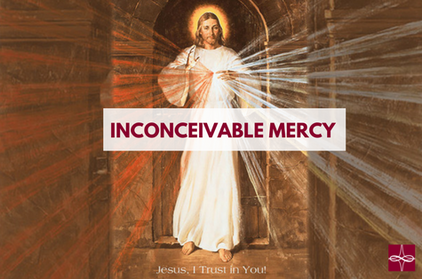

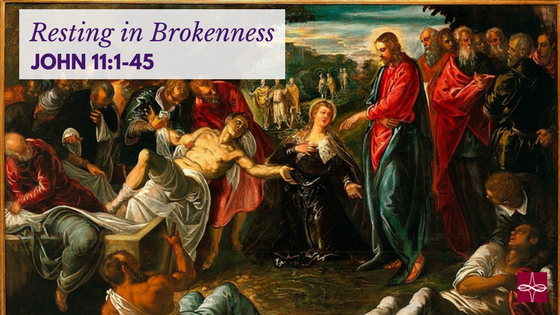
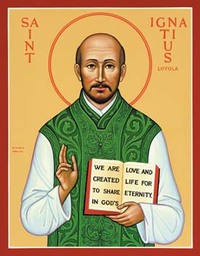
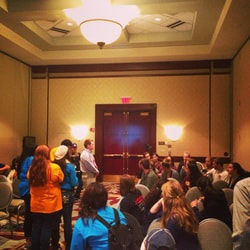


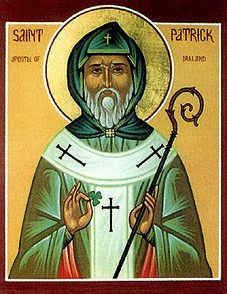
 RSS Feed
RSS Feed